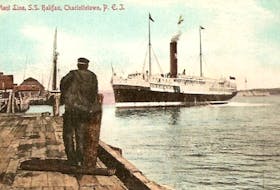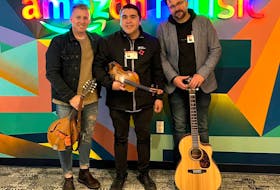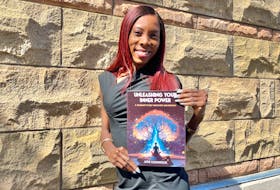In fact, Newfoundland and Labrador has one of the highest rates of Type 1 diabetes in the world and our ancestors may be to blame.
When a small number of individuals from Europe settled in the province, they brought Type 1 diabetes with them, among other genetic conditions that are rare to our part of the world.
People with Type 1 diabetes are at risk of developing complications in the future such as heart and blood vessel diseases, and they may also experience complications with kidneys, eyes and feet.
This has brought together researchers at Memorial University and the Janeway Pediatric Research Unit to examine complications that have already developed in patients to better predict what could happen with future patients. The research could have a significant impact on people diagnosed in the future, and their treatment.
The research team includes Lourdes Peña-Castillo from the departments of computer science and biology; Dr. Leigh Anne Newhook from the faculty of medicine; Sharon Smith from the Janeway Pediatric Research Unit; Peter Gregory, an undergraduate student studying biochemistry; and Chris Hammill, a graduate student with the department of biology. Their research is being funded by a research grant from the Janeway Foundation.
Together, the multidisciplinary team is examining genetic and clinical information, such as family history and blood tests, over a 10-year period for 150 patients in the province with Type 1 diabetes. The study builds upon an earlier study conducted by Newhook 10 years ago. A subset of the patients from the original study agreed to participate in this new research.
“We are hoping to identify associations between gene variations, patient characteristics and complications of diabetes using computer algorithms,” said Peña-Castillo.
“If we can identify clusters of variables that are related, we can build a network of those attributes and compare that to people with certain complications, using that as a predictor for others with the same attributes.”
The team is hoping the algorithms will eventually be used by health-care practitioners to provide preventive care for patients.
“The research is aimed at helping young people who are going to be diagnosed in the future,” said Hammill, a master’s student who is originally from Toronto.
“If we can learn what to look for when they’re young, we might be able to predict whether or not they’re going to develop certain complications as they age.”
For Peña-Castillo, it’s rewarding research.
“I love doing research in general,” she said, “but I find it extremely rewarding when a research project such as this one has the potential to have a positive impact on people’s lives.”
Krista Davidson is a communications co-ordinator for the Office of the Vice-President (Research) at Memorial University. Email [email protected]
In fact, Newfoundland and Labrador has one of the highest rates of Type 1 diabetes in the world and our ancestors may be to blame.
When a small number of individuals from Europe settled in the province, they brought Type 1 diabetes with them, among other genetic conditions that are rare to our part of the world.
People with Type 1 diabetes are at risk of developing complications in the future such as heart and blood vessel diseases, and they may also experience complications with kidneys, eyes and feet.
This has brought together researchers at Memorial University and the Janeway Pediatric Research Unit to examine complications that have already developed in patients to better predict what could happen with future patients. The research could have a significant impact on people diagnosed in the future, and their treatment.
The research team includes Lourdes Peña-Castillo from the departments of computer science and biology; Dr. Leigh Anne Newhook from the faculty of medicine; Sharon Smith from the Janeway Pediatric Research Unit; Peter Gregory, an undergraduate student studying biochemistry; and Chris Hammill, a graduate student with the department of biology. Their research is being funded by a research grant from the Janeway Foundation.
Together, the multidisciplinary team is examining genetic and clinical information, such as family history and blood tests, over a 10-year period for 150 patients in the province with Type 1 diabetes. The study builds upon an earlier study conducted by Newhook 10 years ago. A subset of the patients from the original study agreed to participate in this new research.
“We are hoping to identify associations between gene variations, patient characteristics and complications of diabetes using computer algorithms,” said Peña-Castillo.
“If we can identify clusters of variables that are related, we can build a network of those attributes and compare that to people with certain complications, using that as a predictor for others with the same attributes.”
The team is hoping the algorithms will eventually be used by health-care practitioners to provide preventive care for patients.
“The research is aimed at helping young people who are going to be diagnosed in the future,” said Hammill, a master’s student who is originally from Toronto.
“If we can learn what to look for when they’re young, we might be able to predict whether or not they’re going to develop certain complications as they age.”
For Peña-Castillo, it’s rewarding research.
“I love doing research in general,” she said, “but I find it extremely rewarding when a research project such as this one has the potential to have a positive impact on people’s lives.”
Krista Davidson is a communications co-ordinator for the Office of the Vice-President (Research) at Memorial University. Email [email protected]








